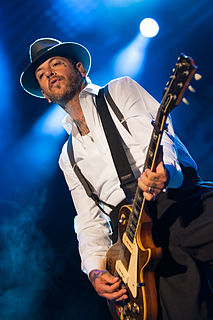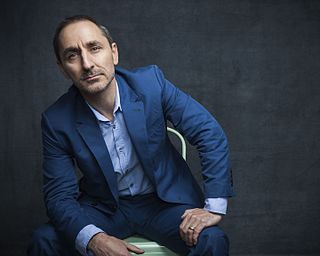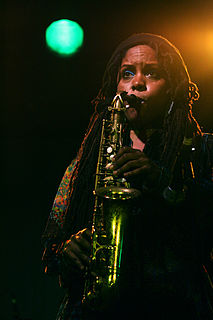A Quote by Kirk Franklin
I think at people's core, everybody's just looking to be healed inside because we all coming with childhood trauma, especially people of color.
Related Quotes
I think trauma gets a reductive treatment. We tend to think only violence or molestation or total abandonment qualify as "childhood trauma," but there are so many ruptures and disturbances in childhood that imprint themselves on us. Attachment begets trauma, in that broader sense, and so if we've ever been dependent on anyone, I think there is an Imago blueprint in us somewhere.
God is inside you and inside everybody else. You come into the world with God. But only them that search for it inside find it. And sometimes it just manifest itself even if you not looking, or don't know what you looking for. Trouble do it for most folks, I think. ... Yeah, It. God ain't a he or a she, but a It.
When you're a mass-market writer, people think that you can just decide 'this happens, this happens, this happens', whereas with literary writers it's coming from their soul and their core. But with me it does come from my soul and my core, and my soul and my core often go AWOL, and then I've nothing to write.
There are those uncomfortable things that've passed that you have to deal with or they define you, like childhood trauma. Like when I'm lost, I just feel like somewhere along the line, if you've gone through any childhood trauma, it makes you lose your essence and it takes a while to get that back. There are certain things about that that push my buttons.
Everybody's going to do the 3D slightly differently the same way that people are going to deal with color differently. Some movies downplay the color, some color is very vibrant. Color design is very different. We've got to think of 3D like color or like sound, as just part of the creative palette that we paint with and not some whole new thing that completely redefines the medium.
White people don't have that problem, they get to go through life never having to fit into a box, and it's really more so true for white men because even just being a woman, you sort of have to walk around other people's assumptions of you and it's so exhausting and there's a sense, especially among young people of wanting to just live your life, not having to wear the weight of that pressure - pressure that people of color feel, that gay people of color feel, that women of color feel.
The chaos of two cultures merging is the best time to forge a new identity to unify people, because everyone is looking for answers and everybody's looking for leadership. That's when there's an opportunity to say, 'OK, this is what we stand for.' People aren't set in their ways because everything is up for grabs.
Strangely enough, for many many years I didn't talk about my childhood and then when I did I got a ton of mail - literally within a year I got a couple of thousand letters from people who'd had a worse childhood, a similar childhood, a less-bad childhood, and the question that was most often posed to me in those letters was: how did you get past the trauma of being raised by a violent alcoholic?
Since I was born I remember my dad and my mom always embracing diversity and differences among people and that being the core of America and happiness and all those different things. And that goes along with equality and you should treat everybody equal and be fair and not judge people and dislike people because they are different, and embrace and enjoy people because of the differences they have.




































